In the first 108 days of Kai’s life, he fought for every breath.
Born at 2 pounds, 10 ounces at 27 weeks by emergency C-section, he was rushed from labour and delivery to the healthcare specialists in the Neonatal Intensive Care Unit (NICU) at HSC Children’s Hospital. What was supposed to be a celebration for parents Nathalie and Codey, became a nightmare that lasted for weeks.
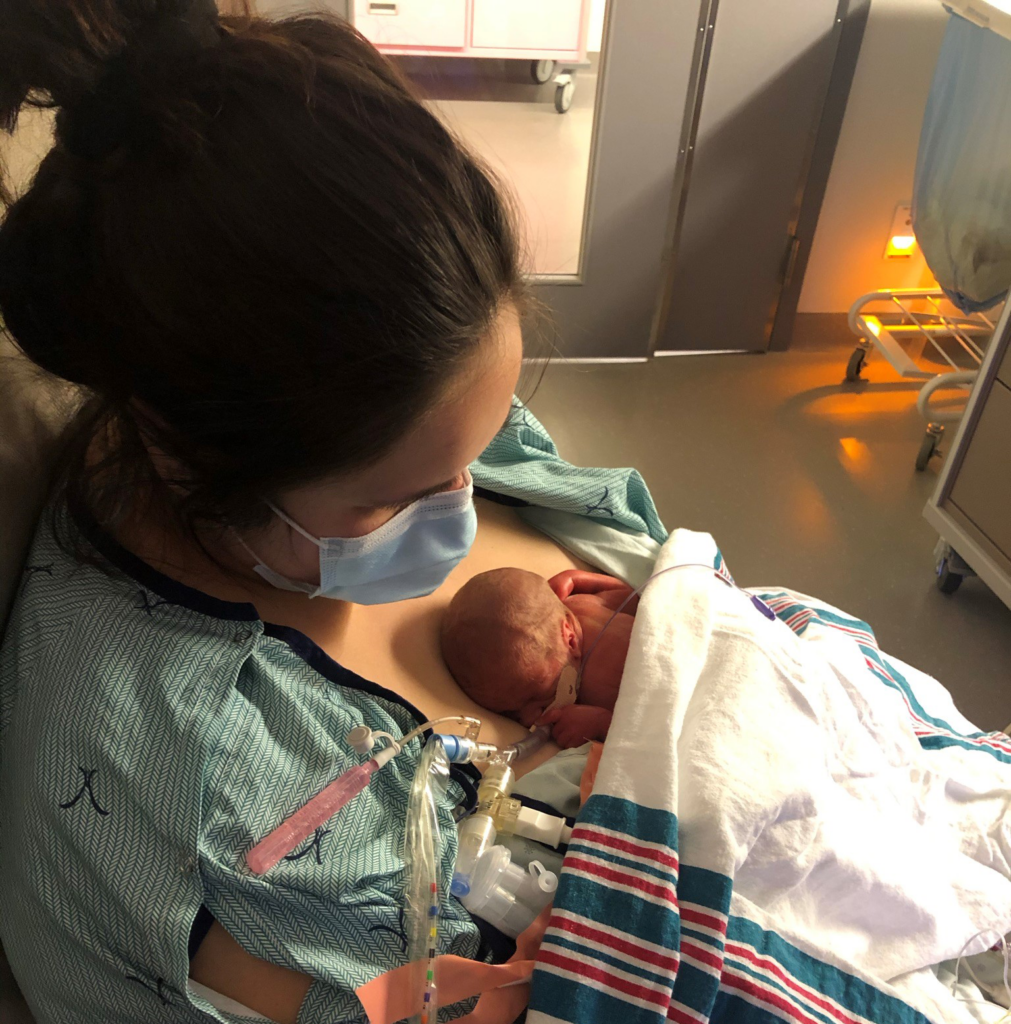
“Am I going to lose another baby?” says Nathalie. “There was no way I could live through another loss.”
Nathalie, Kai’s Métis mother, had an odd feeling about her second pregnancy. Only a year earlier, Kai’s older brother Noah was stillborn, so Nathalie carefully tracked her second pregnancy – every movement in her belly and heart rate readings. During a routine pregnancy check-up at HSC Women’s Hospital, the healthcare team detected Kai had decreased movement in the womb and a slowed heart rate – all significant markers to the prenatal specialists and Nathalie as signs of something more to come.
“Every single time I felt like something was off, I would go to triage for an ultrasound,” says Nathalie. “One day I didn’t feel him moving as much, so I went in, and they couldn’t record his heartbeat because it was so low.”
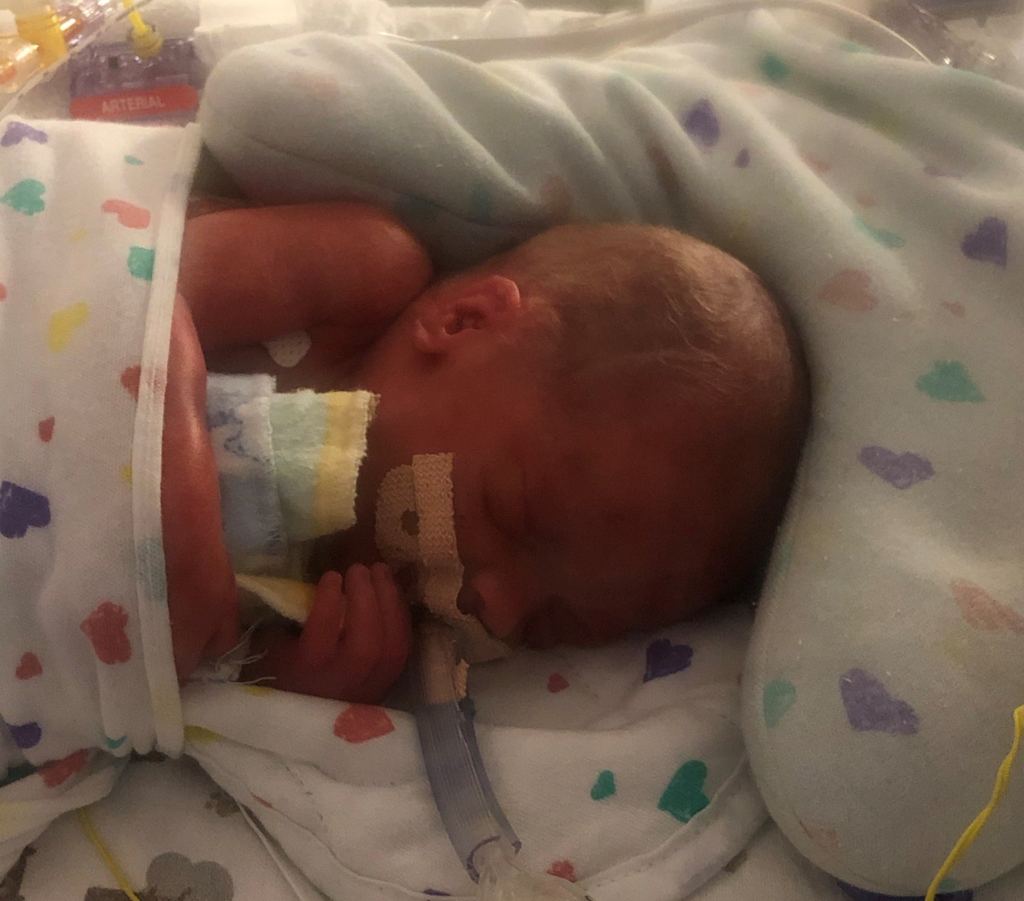
Immediately, the healthcare team performed the C-section and quickly placed Kai on their tiniest ventilator to keep his underdeveloped lungs from collapsing. Doctors told Nathalie that the lungs are the last of the vital organs to develop in the womb. As a premature baby, Kai’s lungs needed additional support through ventilators and specialized treatments.
“The healthcare team at the NICU is almost like a second family to me,” says Nathalie. “They would always consider what I had to say and make the best decision for Kai.”
After three weeks, the healthcare team changed his treatment to a continuous positive airway pressure treatment (CPAP), a machine that stabilizes air pressure in the lungs. Two weeks into the new treatment, they noticed tears on the skin of Kai’s nose and septum. To prevent further damage, specialists updated his treatment to high-flow oxygen therapy, a treatment that delivers oxygen at a higher flow rate than standard oxygen therapy. Due to being born prematurely, Kai now has permanent lung damage and will need to be monitored throughout his life.
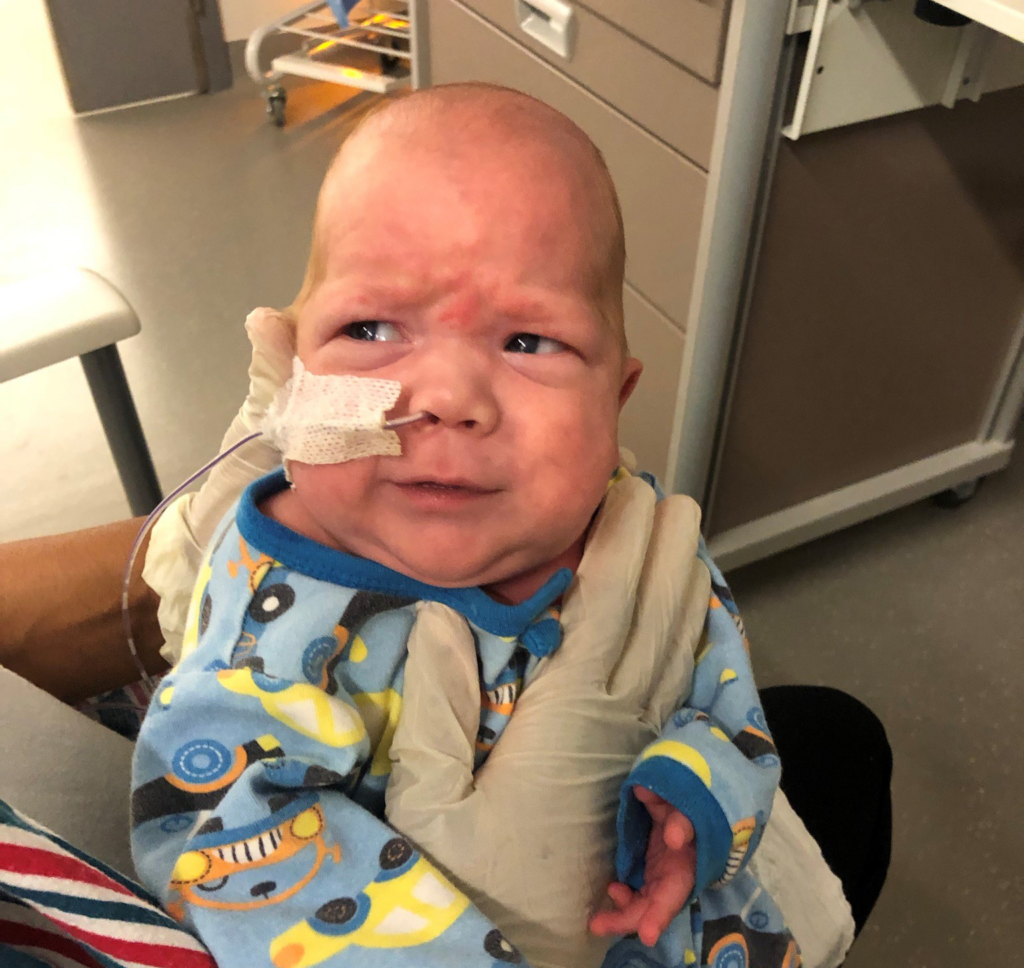
“When he’s sick, we have to use the humidifier more often than someone who doesn’t have lung problems,” says Nathalie.
Despite his health challenges, Kai is like most two-year-old children his age – running around, playing outside, and enjoying just being a kid.
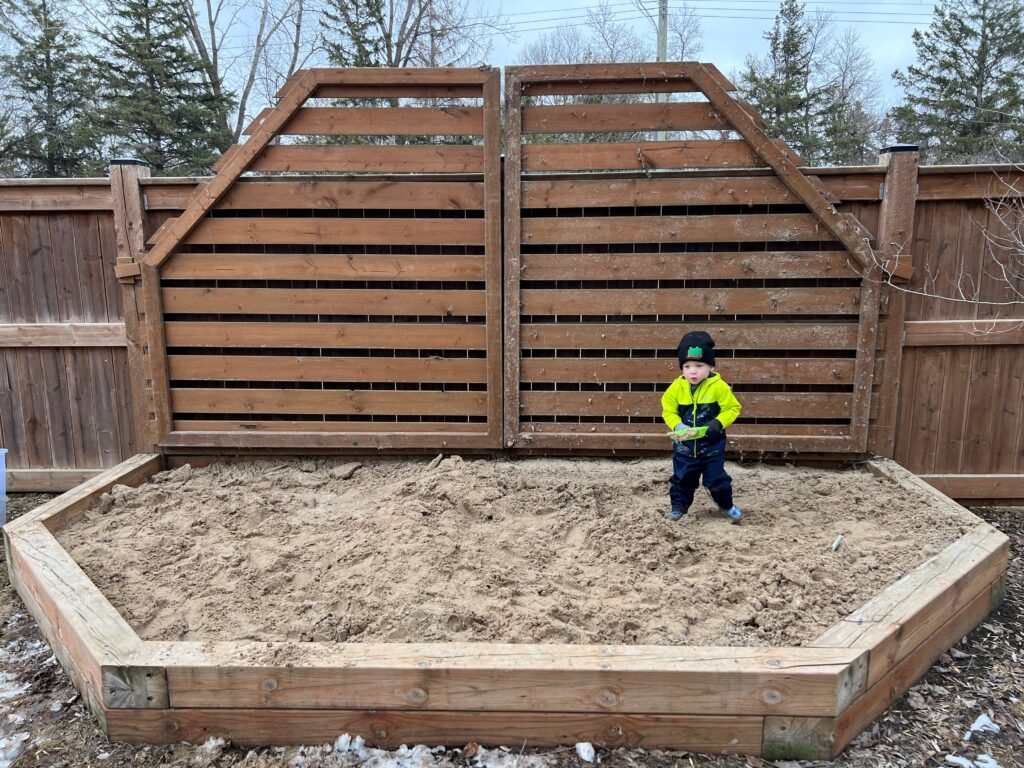
Nathalie credits Kai’s recovery to the dedicated nurses and doctors at the NICU for their exceptional care and patience. In the event of another child or problems with Kai’s health, Nathalie knows the NICU team will be by their side the entire way.
“I’d be going back to HSC if we were to have another baby because I know that we’ll have the care,” says Nathalie.
“I know how amazing the healthcare team are, so it’s a no-brainer to go back.”
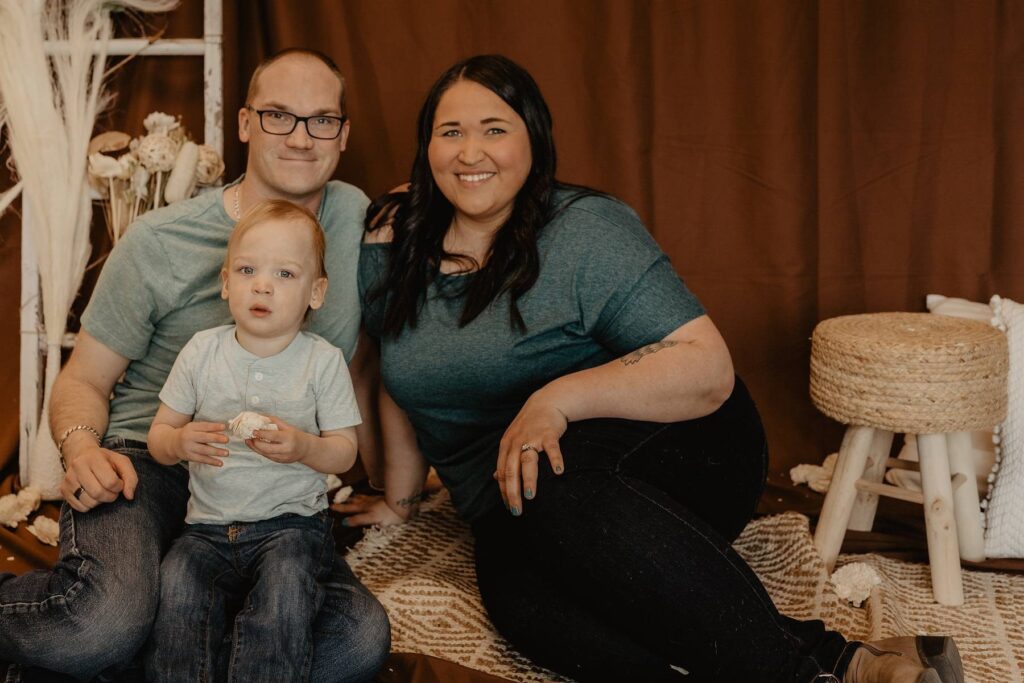
Nathalie, Kai, and Codey now live in Ste. Anne, Manitoba. Nathalie says Kai continues to do well, enjoying all sorts of outdoor activities like swimming, playing in the sandbox, ball pits and his new favourite toy – a water table.
Generous donors help fund critical life-saving equipment in the NICU, the same equipment that saved Kai’s life. Some of these specialized tools include a point-of-care ultrasound, a machine that allows care providers to learn more about their tiny babies’ conditions without having to move them for testing.
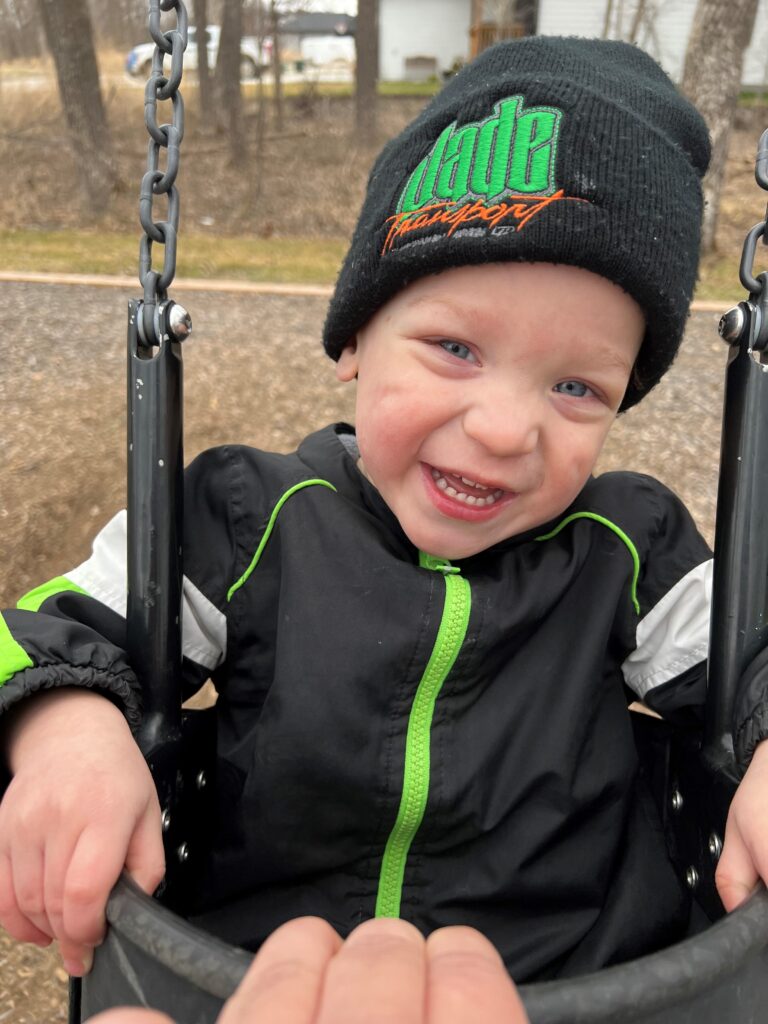
“Kai is doing amazing now in all other aspects,” says Nathalie. “If the NICU didn’t have the support from donors, Kai may not be doing as good as he’s doing right now.”
Stay in touch!
Sign up for e-news to get updates on the latest events, news, and stories.
sign up for the newsletter